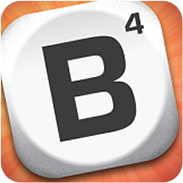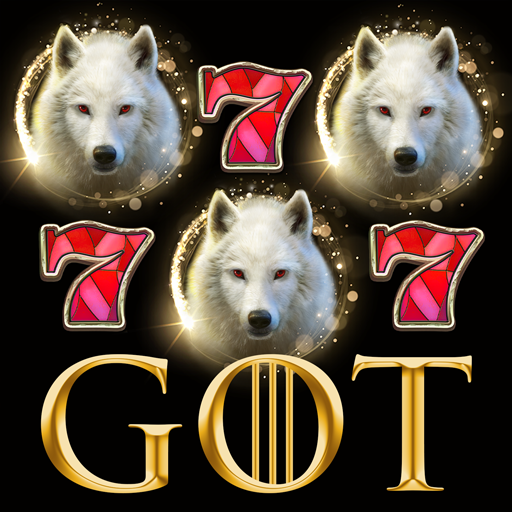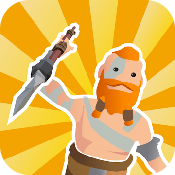Hispanic Heritage Month Employee Spotlight: Katie Morris
Katie Morris, AMIGOZ Co-Lead and Senior HR Program Manager celebrates Hispanic Heritage Month and shares her story about what it’s like to work in tech as a woman — and more specifically, as a diverse woman in gaming — the importance of mentorship and championing your development…and how her career in HR all started with The Silence of the Lambs.

How did you come to work at Zynga?
Bear with me, because this is going to be long. HR was not something I set out for at the beginning of my career. There were many things I wanted to do — FBI agent, college counselor, film professor, and private investigator — but each time I began to dip my toe into a new career, it never felt right.
I guess you could say it all started with The Silence of the Lambs.
I was obsessed with that movie — and becoming an FBI agent — when I was nine. But after looking into applying to the academy after college, I quickly realized that their requirements were too strict for my taste. I was a college counselor my last year of college, and I rapidly became disillusioned as budgets were cut, resources were outdated, and our scholarship books were from four years prior.
The idea of being a film professor was shot down in record time. After meeting some people who were also interested in the Master of Arts program in Cinema Studies at NYU, I realized I didn’t want to dissect films. I just want to watch them. (Sidenote: If anyone wants to chat about 80s action and horror movies or play a quick game of six degrees of Kevin Bacon, hit me up on Slack.)
As for being a private investigator, honestly, this one’s still on the table. One day, I’ll get my PI license, probably as a way to pass the time in retirement.
So, after a year of temp jobs in NYC, I was offered a position at NYU’s Tisch School of the Arts as an HR Assistant. I had three amazing bosses who took the time to teach me labor and union laws, why documentation matters, and how important getting things in writing is. They let me own projects like HRIS user training, build an HR process playbook, and more. During that time, I learned how interesting HR could be (nerd alert). I had to have research skills, document everything, and pay attention to detail – it was exhausting and awesome all at the same time!
But I hated New York winters, so after seven of them, I moved back to Austin where I had gone to college, and began working for a small e-commerce company. The company had been working with no HR department, so I stepped in to get them up to compliance, build an employee handbook, get perks and discounts, set up an automated payroll system, and create a recruiting process where there was none.
After about a year and a half, I moved on to work in big tech on their HR Helpline. I learned so much about global policy and was handed many projects, including the global anniversary program and knowledge base auditing. I transitioned to the newly formed Recruiting Coordination team, where the first six hired employees and I built processes and training for a team that would later grow to over 35 team members.
I didn’t intend to go into recruiting, so I found a rotational role as a Project Coordinator in a non-HR department and fell in love with project management. I wanted to find a role that would take me back to HR but allow me to utilize my project/program management skills, and to do that, I looked elsewhere. When I applied to Zynga’s Sr. Coordinator of People Operations, I clicked with everyone I met — and I knew I was making the right choice. I’ve been here for four years now and have grown a lot in my role.
Since starting with Zynga, how has your own growth and development progressed?
It seemed to come naturally, but I think it was a perfect storm of good management and my newly found ability to advocate for myself. During my time as the Sr. Coordinator for People Ops, a reorganization shifted me to a team I hadn’t worked closely with — moving me from Talent Management to HR Operations.
My work began to change, and I realized that my role had shifted — so did my new manager. So, we sat down together to chat and write out what this new role was, compared it to our job family architecture, and she promoted me to a Specialist position. From there, I began to slowly manage programs independently, help on projects here and there, and learn more about the other People teams and how they functioned. My new team was amazing, and we worked well together, which absolutely helped my growth exponentially.
One consistent habit was to be honest in my performance evaluations. I documented my work well, but my main focus was to ensure my manager knew how I wanted to grow within the next year and what, if anything, I felt I had outgrown. I asked for more project work because I loved the ability to support teams in that way. We would work together to see what was feasible to remove from my work or add to my plate, what projects were coming up to keep in mind, etc. We had game plans but we don’t know what’s around the next corner. So, we would adjust and adapt.
When I thought I was ready to take the next step in my career, I put together a document that listed all of my programs/projects/accomplishments, and how they compared to the next step in my job family architecture — and I didn’t shy away from documenting anything I felt was not my biggest strength. My manager reviewed it with me, gave me notes, and championed my promotion with our People Leadership team.
I took ownership of my own destiny by pushing for a promotion, and I was lucky enough to have a manager and leadership see my potential. I’m now in a role where I continue to hone my project skills and work on programs that support our employees.
Do you have any mentors or leaders that have helped or inspired you throughout your career?
I had two fantastic bosses while I was working as a Project Coordinator at my previous company. They always set aside time to talk me through the work they were doing and teach me the ins and outs of project management. They were women in a male-dominated field with decades of experience but were always honest with me about the work that they must put into their role and continuing education. They were advocates for me and the work that I did, while also being brutally honest about the lack of upward mobility they saw in the field. When I was asked to return to my team, we knew that was not a path I wanted to continue down as a career. They pushed for a permanent position on their team, and when that didn’t get approved, they gave me feedback on my resume and encouraged me to interview with other companies to find what I was looking for. They really helped quiet my imposter syndrome and embrace change. I will always be grateful for them.
Today, I am one of the lucky people whose mentor is their direct manager. She’s a walking knowledge base, and I continue to learn so much from her. I bounce ideas off her, I am honest about what I want to do, and she is just as honest with me about what needs to happen to get to the next level. I tend to overthink things, but she continues to support me when I fall down rabbit holes. I am more confident in my work and my future because of her mentorship. I joke that I’ll never work for anyone else ever again, and I hope I don’t. Shout out to Susan!
As a woman in the tech industry, what are some difficulties or obstacles that you’ve faced, and how did you overcome them?
I think it’s fairly common for outspoken women to be branded as troublemakers or not viewed as team players. The idea is to remain passive and align with the status quo to be fully accepted into a company, but I wholeheartedly disagree. Real change won’t happen without people speaking up and speaking out about issues that impact you and others.
At a former company, when I spoke up about my team’s burnout and morale issues many years ago, my manager said I was being negative, even when I brought up easily implemented solutions and openly spoke on how attrition would continue to disintegrate our team. I was considered negative from that day forward, removed from the short list of team leads and removed from certain projects. My team lost hope in any change, and I lost hope of moving up in my career. So, I found a different role and moved on. I tried my best to help and advocate for my fellow team members, but for this obstacle, the best solution was to walk away.
Being given historically gender-normative work is also something many women deal with at some point in their careers. We are seen as caregivers and housekeepers, and that view constantly bleeds into office culture. There were a few times in my career where I was given requests to order food, plan a holiday party, and even clean up after an event — none of which had anything to do with my job at the time, and that work was never handed over to any of the men on my team even if they were in similar positions. In one of my later positions where this happened, I took matters into my own hands and created sign-up sheets. To be honest, this isn’t a great story of overcoming systemic gender issues because, in the end, I still had to own the creation and execution of that change by myself.
What is it like being diverse in gaming?
I’m sure it depends on a number of factors — your company, team, manager — that all make a difference on whether you feel comfortable as a diverse employee or not, so I cannot speak for everyone. For me, at times, it can be emotionally draining for a few reasons. I also don’t think these reasons are that different depending on the industry.
For one, I have struggled with imposter syndrome most of my life, and many minorities do, as well. Personally, it is that as someone of mixed race, I was always on the edge of groups — too Mexican to be white but not Mexican enough. That shaped my psyche in the worst possible way because I was an outsider from all sides. This continued to grow and fester through most of my career. I would find myself spiraling about the smallest error because, in my head, that tiny error was how everyone was going to know I didn’t belong.
I always think I need to be at 100% because, otherwise, cracks will begin to appear, and the facade will show that I’m a fraud. Many people don’t understand how much stress that puts on minorities in the workforce. It’s a heavy burden that we all manage daily; even on our best days, we can feel it creeping up in the back of our heads. During my time at Zynga, I have been given multiple opportunities through coaching and mentorship to work through my imposter syndrome, come up with a process to prevent me from spiraling, and discuss how imposter syndrome affects me with others. Access to these tools and options are very important to the growth and retention of diverse employees here.
Diverse employees also tend to carry the dual burden of not only having to call out/identify/highlight issues that are currently embedded within organizations — but also provide solutions and/or educate these organizations about the issues. It’s a “help us help you” situation where we have to own the action instead of organizations leading the action themselves. That takes an emotional toll because there is a fear that you can’t be too outspoken because you would be seen as a troublemaker (see above) — but also, if you’re not outspoken enough, then maybe the big issues remain. This leads to an existential back and forth of whether it’s even worth bringing up concerns because of the fear of how your possible solutions will be reacted to. As an ERG leader, having a platform and resources to highlight these issues, discuss them within our ERG communities, and bring them forward to Zynga leaders has been met with nothing but positive reactions. We’ve been involved in bold conversations, but we are never turned away or brushed aside. Solving systemic issues is a partnership that requires mutual respect and honesty — and here at Zynga I hope employees continue to see positive change going forward.




















































